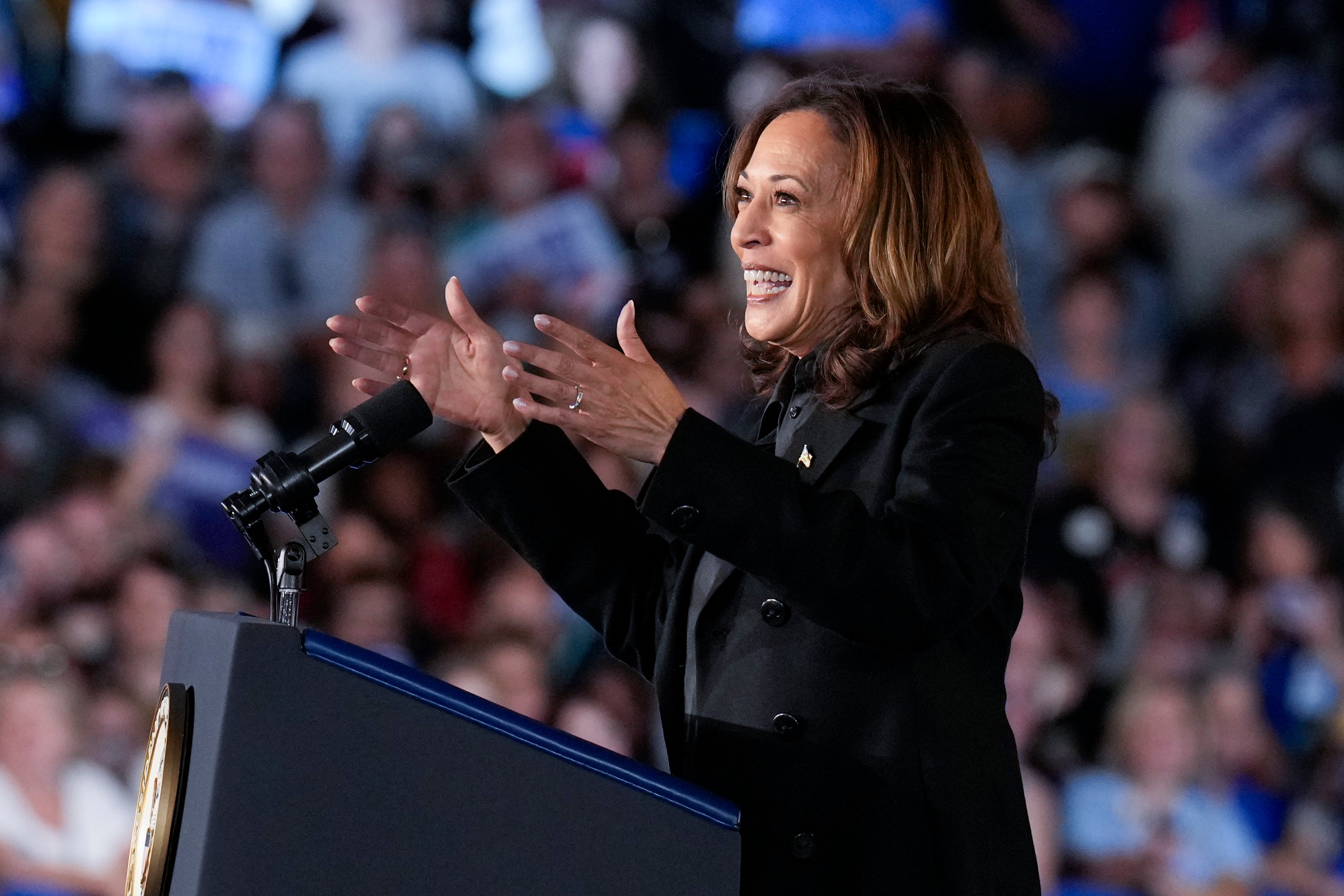As a Black woman, here’s why I don’t want Kamala to make the election about race
By resisting the temptation to make this a contest about ‘firsts’, the vice-president is well on her way to making history, writes Coral James O’Connor


There was a heart-stopping moment in Tuesday’s US presidential debate between Kamala Harris and Donald Trump, when I needed to take a deep breath and thought to myself: “Here we go…”
It came 80 minutes in, when Donald Trump returned to one of his favourite topics, Kamala Harris’s racial heritage – and how, in his words, she had “turned Black”, having previously emphasised her South Asian heritage. I was braced for fireworks.
“I don’t care what she is,” Trump said. “I couldn’t care less. Whatever she wants to be is OK with me. All I can say is I read where she was not Black… and then I read that she was Black, and that’s OK. Either one was OK with me. That’s up to her.”
But Harris, rather than rising to Trump’s goading or even wearily dismissing it as insulting – or, for that matter, using it to launch into a personal speech about being proud to have been born to a father from Jamaica and a mother from India – she simply ignored it altogether.
And instead of making a point about the historic significance if she wins November’s election, she coolly ran through a history of Trump’s racist remarks, saying: “I think it’s a tragedy that we have someone who wants to be president, who has consistently, over the course of his career, attempted to use race to divide the American people.”
It was a measure of the no-nonsense approach that Harris had maintained throughout the debate, born perhaps of a wariness of the old trope of being called the “angry Black woman”.
It was also a reminder that, since she embarked upon her race to the White House, Harris has consistently sidestepped the issue of her race and, for that matter, her gender. Which puts her campaign in stark contrast to the approach taken by Hillary Clinton in 2016, whose presidential bid was built around her nomination being a “first” for women.
Harris does not want people to vote for her because there are glass ceilings to be shattered – the first woman, the first Black American, the first of Caribbean descent, the first South Asian American, the first married to a first gentleman. That’s a lot of firsts not to mention.
She prefers to stick to policy, and to focus on themes such as freedom and unity. In the debate, she came out swinging from the very first question on the cost of living, to the very last on climate change. And, with 63 per cent of US viewers saying she emerged as the winner, I’d say the formula is working.
It was Michelle Obama who laid out the blueprint for Harris with her speech to last month’s Democratic National Committee in Chicago. The former first lady told delegates that Trump attacked her and her husband because they were successful, saying: “His limited, narrow view of the world made him feel threatened by the existence of two hardworking, highly educated, successful people… who happen to be Black.”
It is, again, that Harris “happens to be Black” that means she can afford to move on from her list of “firsts”, and for them not to be an anchor on her appeal. As well as being the first Black woman ever to win the backing of a major party to run for the presidency, she is also the first post-racial candidate.
By making nothing of it, she’s saying: “Hey, y’all – get used to it!” To borrow another line from Michelle Obama: when Trump goes low, Harris goes high.
And perhaps Harris is genuinely over the whole “first Black woman” conceit. As a Black woman of Jamaican descent myself – heritage that I share with Harris – I can’t deny the excitement and pride I felt in 2020 when she rose to the revered position of vice-president. I had expected to feel even more joy in her seeking the highest office.
But somehow, her “getting on with business” message speaks to the existential choice facing America at the ballot box this time – a more fitting framing than intersectional differences on which approach to take on a foe like Trump.
And there might be one observable “first” that Harris will be happy to shout about. She’s the first woman in a presidential debate to leave Donald Trump on the ropes.






Join our commenting forum
Join thought-provoking conversations, follow other Independent readers and see their replies
Comments